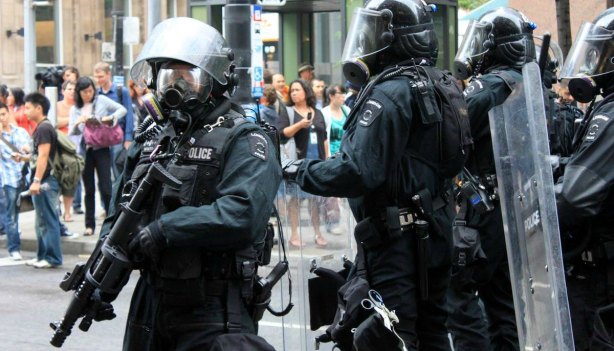When we think of the essential services that the public rely and depend upon such as the health sector, firefighting service, education system police industry and the transport network, they are all perceived to be integral forces that support the safety and welfare of the British people. Regardless of the emergency, whether it is a protest, a national disaster or an act of homicide, all the victims, perpetrators and bystanders involved are entitled to an equal and fair treatment from the emergency services.
However it seems as if we are in the midst of making fundamental changes to one of our essential services. A new privatised police force called MylocalBobby will be rolling out their services across the nation after the “successful” trial period in three London boroughs (Kensington, Mayfair and Belgravia). Customers will simply have to pay roughly £200 per month and this will enable the client to hire a “police officer” who has the ability to make citizen arrests, investigate thefts and other matters of anti-social behaviour. I can understand how some may regard this as credible alternative to the corrupt and bureaucratic state police force, but I can only see this as the marketisation of the police and the encroaching two-tier system between the rich and the poor and their access to police.

MyLocalBobby – Could this be the future of British Policing?
A privatised police not only challenges the notion about equal access to emergency services, but it also raises questions about the principles regarding equality before the law; a concept that is meant to underpin our British constitution. If our police officers are enforcing the law based on a quality of service that you may or may not be able to pay for, then we will not have “equality before the law” but “wealth before the law”.
I also think that politically and historically these changes can be perceived as regressive step back to a more lawless, uncivilised and unstable period in history. When a public police force was created in 1829 it was under a backdrop of violent riots over political reform and rising crime in a densely populated London. It was initiated under the principle of fairness, equality and apolitical behaviour. The architect of the police – Robert Peel – stated that “The police seek and preserve public favor, not by catering to public opinion, but by constantly demonstrating…friendship to all members of society without regard to their race or social standing“. But this is being overturned by an emerging private police force that is being supported by an idea of exclusivity, as the chair of the police federation has claimed ” “Policing is not a consumer or lifestyle issue. Nor should it be the exclusive domain of the wealthy. When Sir Robert Peel introduced the first full-time, professional and centrally-organised police force in the 1820s, that was not what he had in mind.”
However, with deep financial cuts to the police service and a clear loss of police officers, the resort to a privatised police force is becoming more attractive to the Establishment and the wealthy in society. One must take considerable caution at this growing trend, as history has proven how the lack of an organised public police force can cause chaos. The Peterloo Massacre occurred during a political demonstration in 1819 when the local magistrates ordered the military to arrest a radical orator and to disperse the crowd, but due to the intensity of the moment, the undisciplined nature of those armed forces and the confusion around the situation, 15 civilians were killed and many were injured. This was one of the defining events which motivated Prime Minister Robert Peel to create Metropolitan police force in 1829.

Peterloo Massacre – Is this something we could witness in the future?
Now, I am not suggesting a diminished police force will result in a standing army willing to hack at anyone who causes disruption, but there are growing reports that local authorities are relying upon a militarised security force instead of standard police officers on patrol. We are told that they are there to prevent terror attacks, but with a growing unstable political climate and a society that is gaining the confidence to openly demonstrate against controversial measures, the potential for dangerous and violent confrontations is growing by the year. Our right to protest and to resist is seen as a fundamental right in British society but without the necessary measures and tools to ensure that demonstrations are carried out peacefully, we are thus denied the protection of a potentially rational police force and offered the unpredictability of a militarised one.

Is this the path to a new standard of policing in Britain?
The police are designed for the public safety of all citizens and our historic right to protest, but if our government is weakening the the police’s ability to enforce those principles then it runs the risk of leaving us deprived of an essential emergency service.